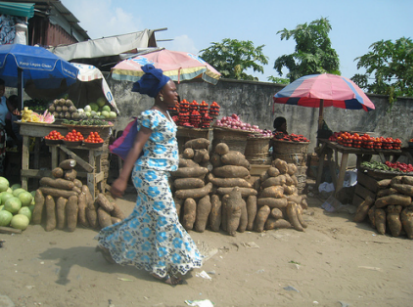NBS releases January Inflation Data, CPI rises to 12.6%
Headline Inflation in the country rose sharply to 12.6% in January, according to a report published by the Nigerian Bureau of Statistics (NBS) today. This did not take anyone unawares as it was an expected economic shock due to the full and then partial removal of subsidy by President Jonathan’s administration. Inflation in December was 10.3%.
According to the NBS report, “The increase in the headline index, composed of the “Core” and Food indices, was due to the partial removal of the subsidy on the Premium Motor Spirit (petrol) that pushed up prices of many food and non-food items as a result of the increase in transportation costs.”
However the NBS did indicate that prices and thus inflation would have soared even higher if not for several events that dampened demand for goods and services in the premier month of the year.
The events were broken down into effect of government policies and procedures and consumer attitudes to consumption in January.
The Central Bank was credited to have implemented “proactive monetary policy in the second half of 2011” that helped to stem astronomical price increases following the partial removal of the subsidy.
The report went on to explain, “the slow release of funds by the government’s FAAC reduced effective demand by reducing available resources for backing increased consumption and expenditure during the month of January. This coupled with consumer’s anticipated recovery from December expenses (which did not occur again, due to reduced funds in circulation) further depressed demand and thus limited price increases and gradually revised some downwards. Furthermore, during the strike period in January, 2012, consumers had a temporary lack of access to funds as banks were closed.”
The NBS also cited consumer behavior such as stockpiling goods before price increases as helping to reduce demand.
All these events forced suppliers to push down prices to acceptable levels so as to be able to receive consumer patronization.






